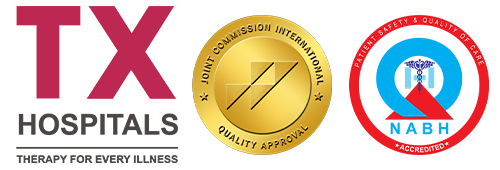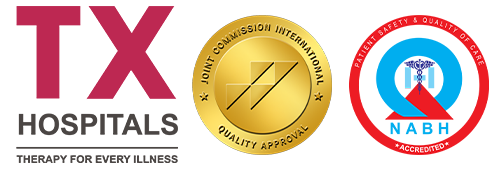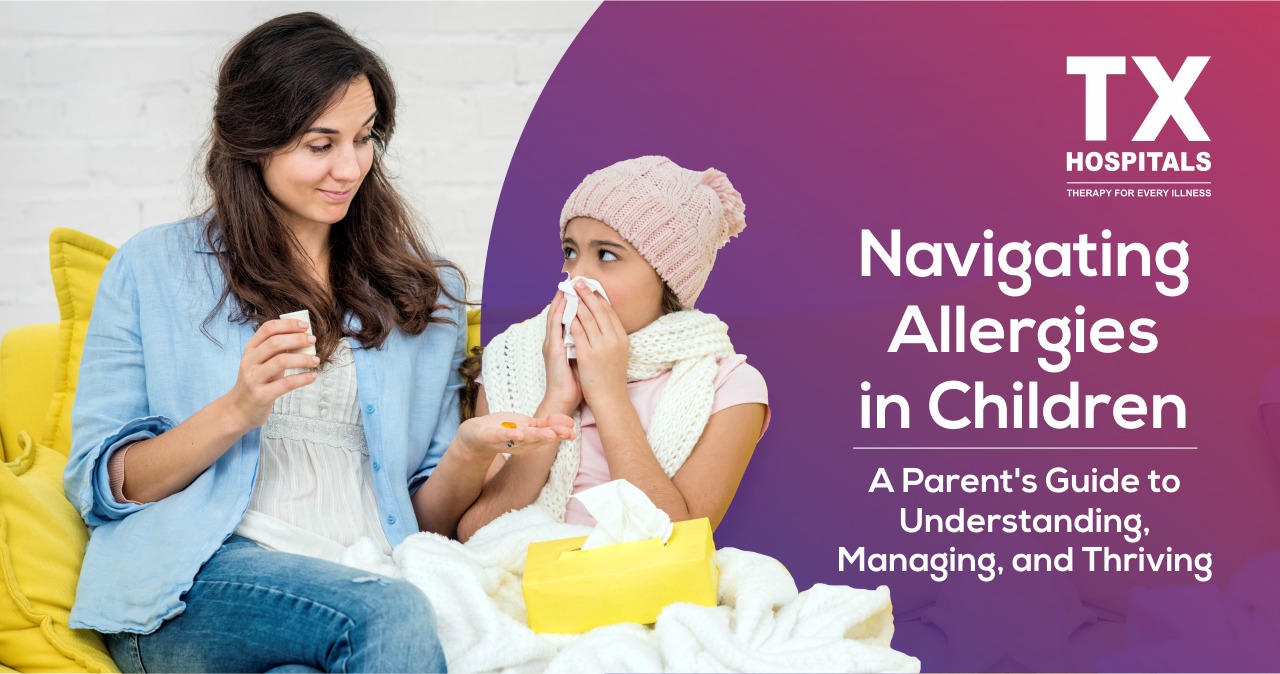Introduction
Allergies in children are becoming increasingly common, impacting their daily lives and presenting unique challenges for parents. In this blog post, we’ll explore the basics of childhood allergies, common triggers, and effective strategies for parents to navigate and manage their child’s allergic reactions. In TX Hospitals, Pediatric care is specialized healthcare focused on the unique needs of infants, children, and adolescents, providing comprehensive medical attention, preventive measures, and developmental support for their overall well-being.
Understanding Childhood Allergies
What Are Allergies?
Explore the basics of allergies and how they develop in children.
Common Allergens: Identify typical allergens such as pollen, pet dander, dust mites, certain foods, and insect stings that can trigger allergic reactions.
Recognizing Allergy Symptoms in Children
Common Symptoms: Discuss common signs of allergies in children, including sneezing, runny nose, itchy eyes, skin rashes, and digestive issues.
Severe Reactions: Highlight the importance of recognizing severe allergic reactions (anaphylaxis) and the need for immediate medical attention.
Diagnosing Childhood Allergies
Consulting with Healthcare Professionals: Emphasize the role of pediatricians and allergists in diagnosing and managing childhood allergies.
Allergy Testing: Explore various allergy testing methods, including skin tests and blood tests, to identify specific allergens.
Creating an Allergy-Friendly Environment
Home Modifications: Provide tips on creating an allergy-friendly home environment by reducing exposure to common allergens.
School and Play: Discuss strategies for working with schools and caregivers to create a safe environment for children with allergies.
Managing Childhood Allergies
Medication Management: Explain the role of antihistamines, epinephrine injectors, and other allergy medications in managing symptoms.
Allergy Action Plan: Encourage parents to work with healthcare professionals to create a personalized allergy action plan.
Empowering Children with Allergies
Educating Children: Discuss age-appropriate ways to educate children about their allergies and how to communicate their needs.
Encouraging Independence: Provide tips on gradually empowering children to take responsibility for their allergies.
Conclusion
Managing allergies in children requires a combination of awareness, education, and collaboration with healthcare professionals. By understanding the triggers, recognizing symptoms, and implementing effective management strategies, parents can create a supportive environment for their children to thrive despite allergies.
TX Hospitals is one of the best hospitals in Kachiguda, Uppal, and Banjara hills with the largest healthcare facility and the best team of doctors and specialist surgeons to help patients recover fast from health ailments.
Book an Appointment with the Best Doctors in Hyderabad.








